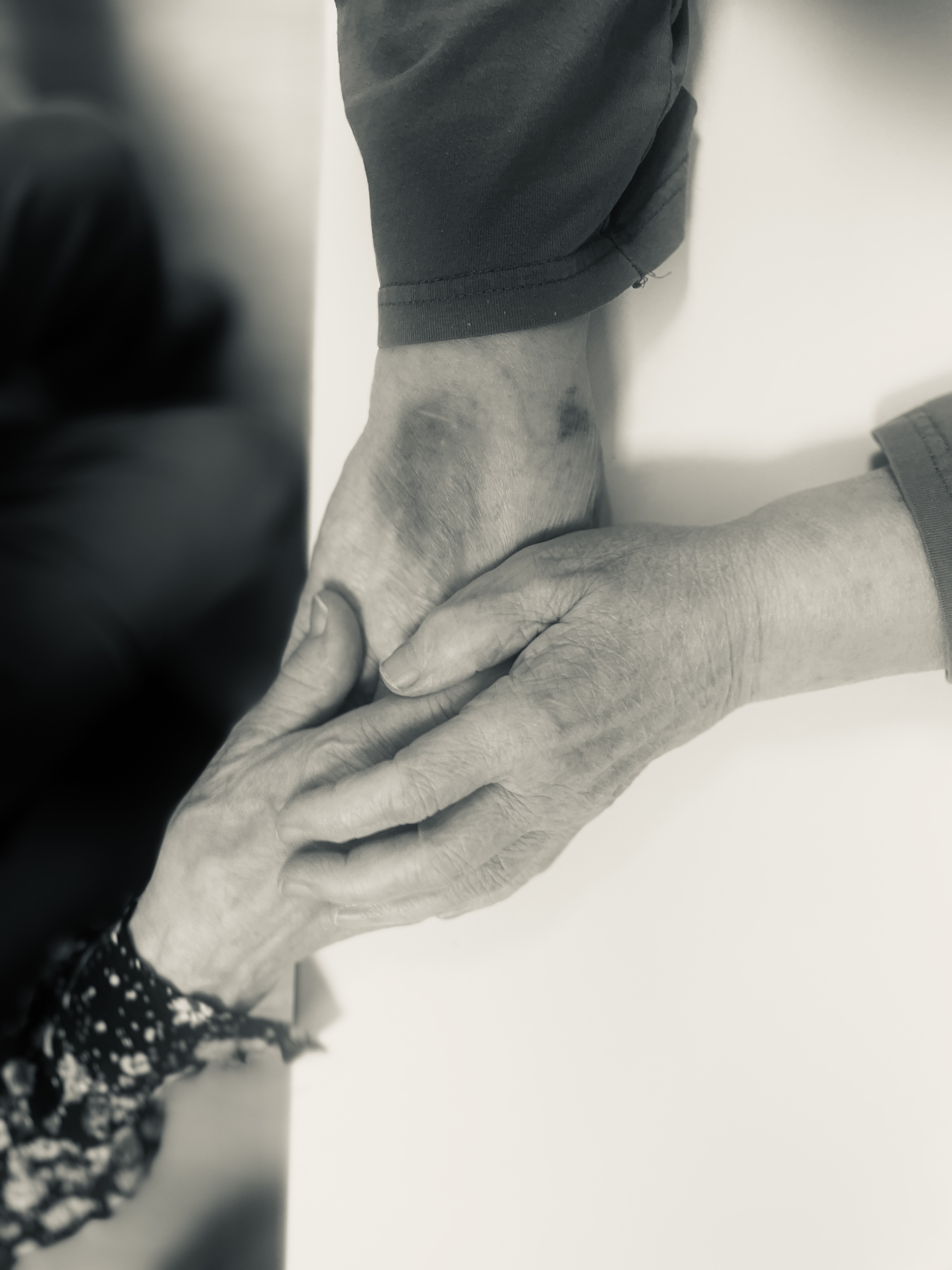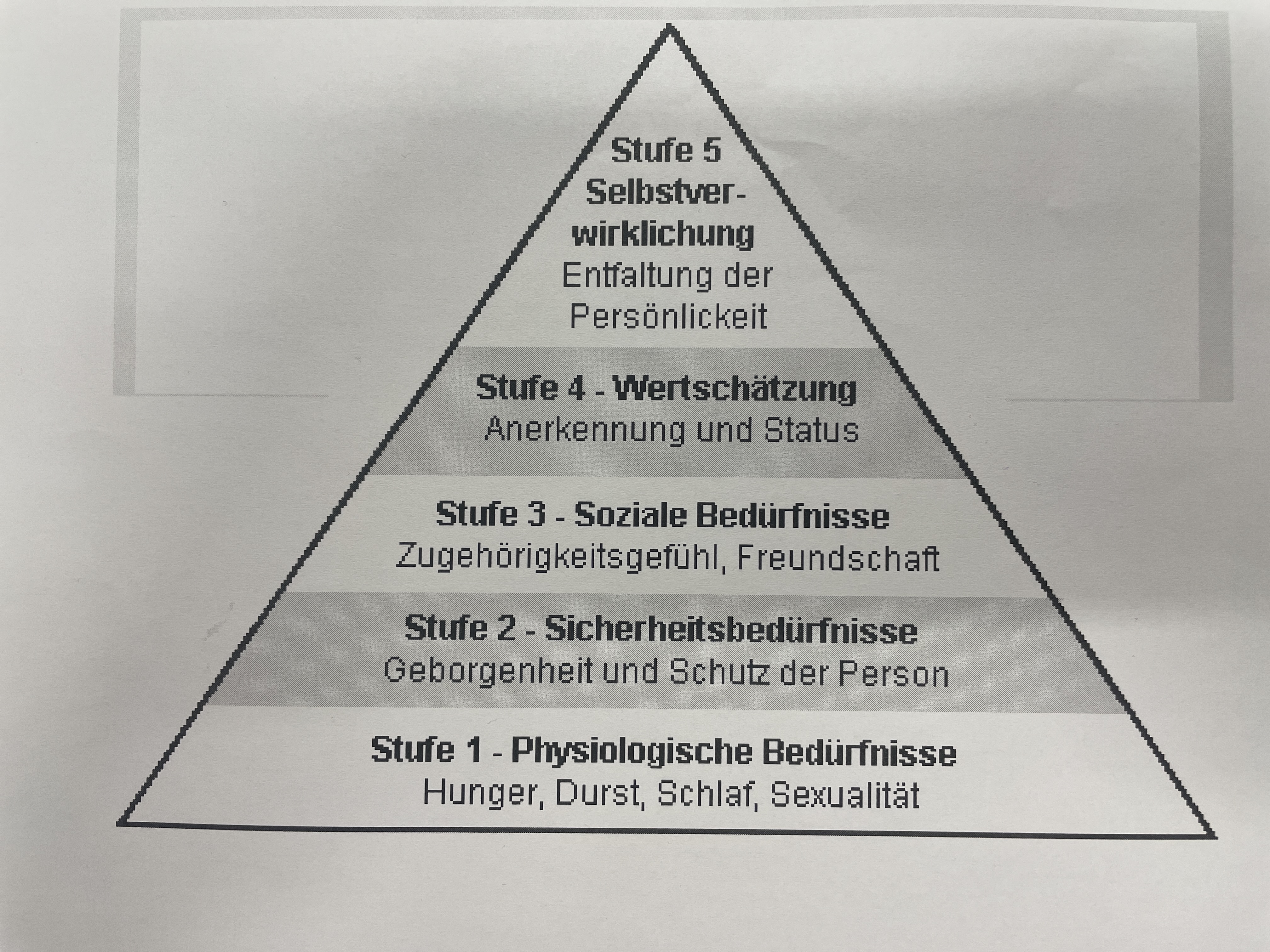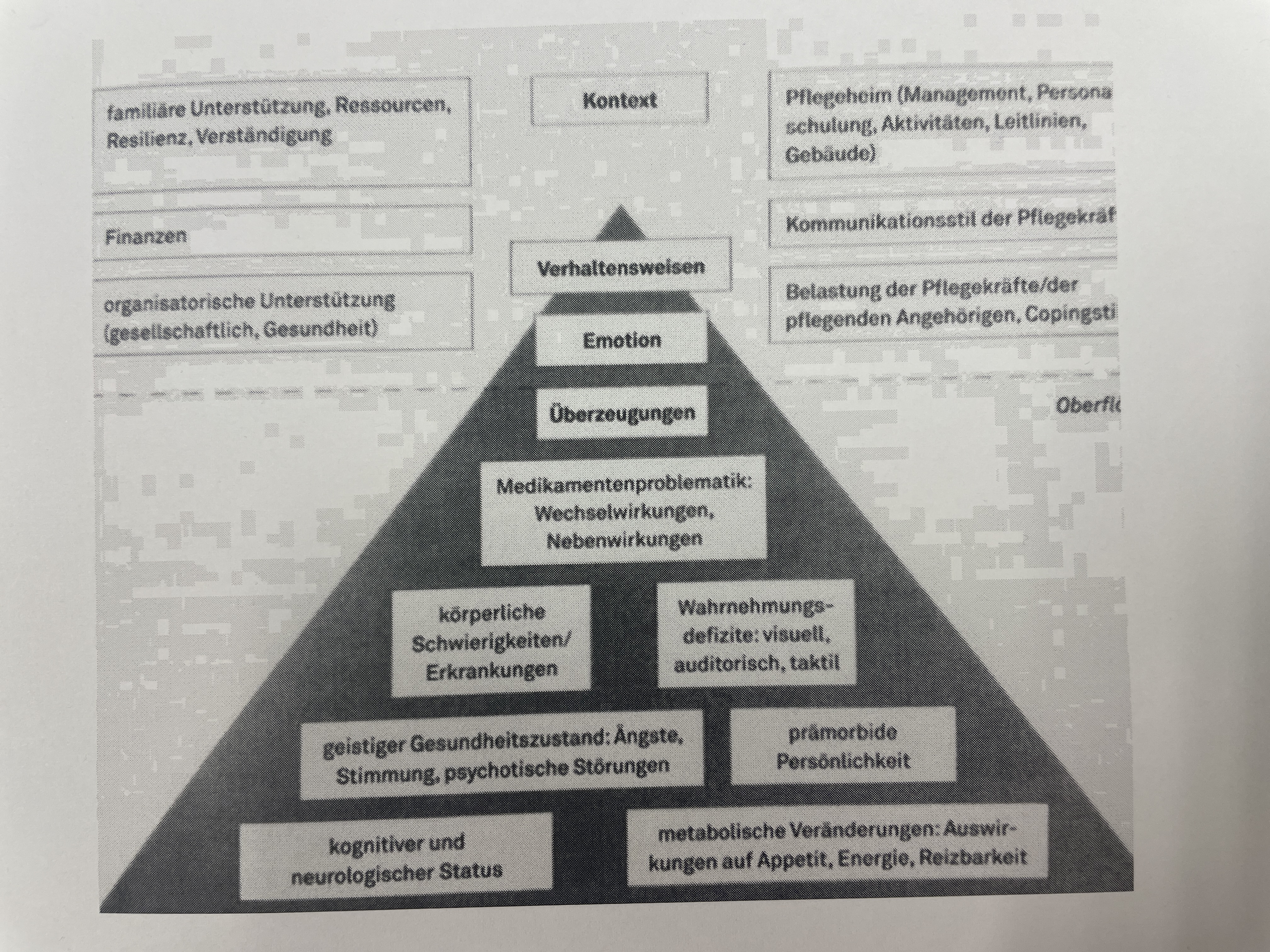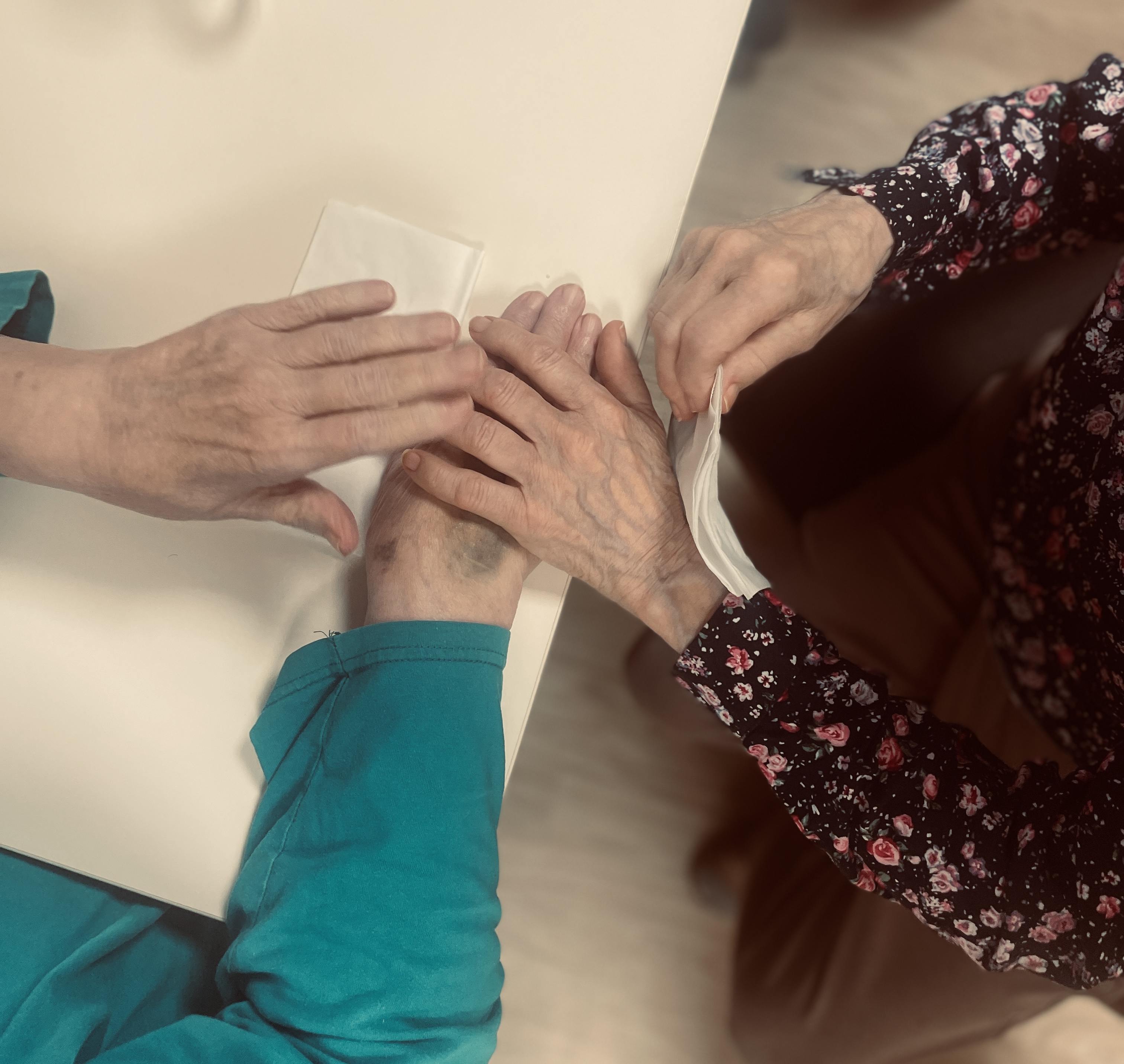Psychology has many meanings, and I’ve always been fascinated by how simple words can change lives. During my time studying in Ljubljana, I had the best roommate ever. She was studying clinical psychology, and from the moment we met, I knew she was someone I could turn to when I felt down.
She helped me a lot. We often stayed up late talking, sharing our struggles. She had her unresolved problems too, but she always knew how to pull herself back up. She shared so much wisdom with me, and I will be forever grateful. Life took us in different directions—she started a family, had two kids, and tragically lost both her parents in just two years. Though we don’t talk often now, when we do, she radiates positivity. I know that if I ever need support, she’ll be there.
Her advice and our talks inspired me to learn more about psychology. I wanted to understand how to help myself, and later, how to help others. When I started working with elderly people, especially those with dementia or no living relatives, I realized how crucial psychological support is.
In the beginning, working as a nurse was emotionally tough. I still remember an elderly lady who constantly wanted to go home to her parents. She would cry, beg, and scream at us for keeping her away from them. I didn’t know how to respond—it broke my heart. But I realized that if I wanted to be good at my job without breaking down, I needed to learn how to help them on a deeper level.
Sadly, many caregivers only focus on essential tasks like administering medicine, feeding, and maintaining basic care plans. Psychological help often gets overlooked. In the facility where I work, a psychologist visits once a month but talks to only about 10 residents out of 70. That’s heartbreaking.
The psychology of elderly people living in a nursing home is shaped by many emotional and mental challenges. Moving into a nursing home can be difficult because it often means leaving behind familiar surroundings, friends, and even a sense of independence. This change can cause feelings of sadness, loneliness, and even depression.

Many elderly people in nursing homes struggle with isolation. They may miss their families, friends, and the daily routines they used to have. Some may also experience grief after losing loved ones. These emotions can be hard to deal with, especially when they feel like they have no one to talk to.
Memory problems, like dementia, can make life even more challenging. Residents with memory loss may feel confused or scared because they don’t understand where they are or why they are there. This can lead to frustration, anger, or withdrawal from social activities.
I decided to change that for myself. I wanted to learn how to support the elderly not just physically but emotionally too. Maybe this isn’t important to everyone, but if even one person reading this has a loved one with dementia or someone struggling emotionally, these tips might help.


When talking with elderly people, it is important to stay calm and positive by using a warm tone, smiling, and making eye contact. Speak clearly, using short sentences and simple words to make communication easier. Encourage them to share past memories, as long-term memory often lasts longer. Be patient and give them time to respond without rushing or interrupting.
Show genuine care by being present and avoiding rushed conversations. Allow them to express feelings like sadness, fear, or anger without judgment. Offering comfort is very important. Avoid false reassurance and instead provide honest support with kindness. Recognize their grief, and encourage stories about loved ones they miss. Sometimes, just being quietly present is the best comfort you can provide.
Listen actively by nodding and responding with affirmations like “I understand” or “that must be hard.” If appropriate, offer gentle touch, such as holding their hand, to show physical support. Use visual cues like photos, familiar objects, or music they love to create comforting moments. Talk about their legacy by asking questions like, “what are you most proud of in your life?” or “what life lessons would you like to share?” Finally, offer reassurance with comforting phrases such as, “you are loved” or “you have made a difference.”
Even learning just a little of this can make a huge difference, for them and for you. I’ve found peace in knowing how to respond and comfort residents in different situations.
At the end of the day, it’s your decision. Are you there only to perform basic nursing tasks, or do you want to offer emotional support too?
One day, we will all be in that stage of life. I hope that when my time comes, the people caring for me will know how to help,not just with medicine but with kindness, understanding, and words that heal.
“Love and compassion are necessities, not luxuries. Without them, humanity cannot survive.” – Dalai Lama

With love, @tinabrezpike ❤️
Is that Abraham Maslow's hierarchy of needs in Deutsch? Thanks !BBH !LOLZ !PIZZA
lolztoken.com
Gross-eries
Credit: reddit
$LOLZ on behalf of day1001
(8/8)
Farm LOLZ tokens when you Delegate Hive or Hive Tokens.
Click to delegate: 10 - 20 - 50 - 100 HP@tinabrezpike, I sent you an
Yes :) How the hell did you know this? 😂
Just figured it out 😁 !BBH !LOLZ !PIZZA
lolztoken.com
The next day she locked me in the cellar
Credit: playbyhive
$LOLZ on behalf of day1001
(1/8)
PLAY & EARN $DOOM
@tinabrezpike, I sent you an@day1001 likes your content! so I just sent 1 BBH(4/20)@tinabrezpike! to your account on behalf of @day1001.
(html comment removed: )
)
$PIZZA slices delivered:
(4/10) @day1001 tipped @tinabrezpike (x2)
@day1001 likes your content! so I just sent 1 BBH(8/20)@tinabrezpike! to your account on behalf of @day1001.
(html comment removed: )
)